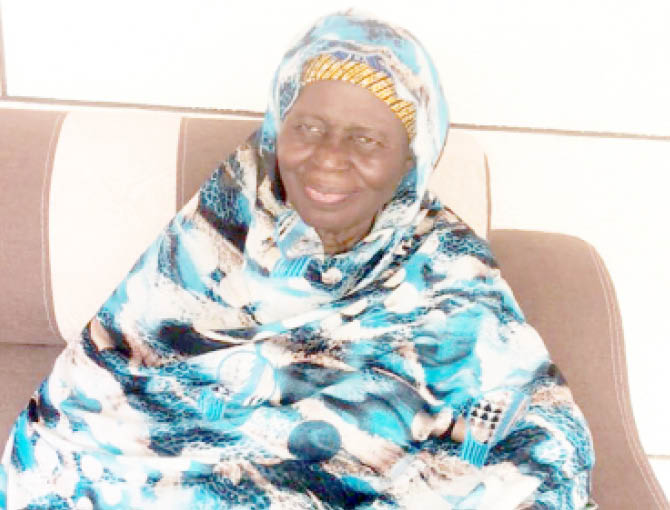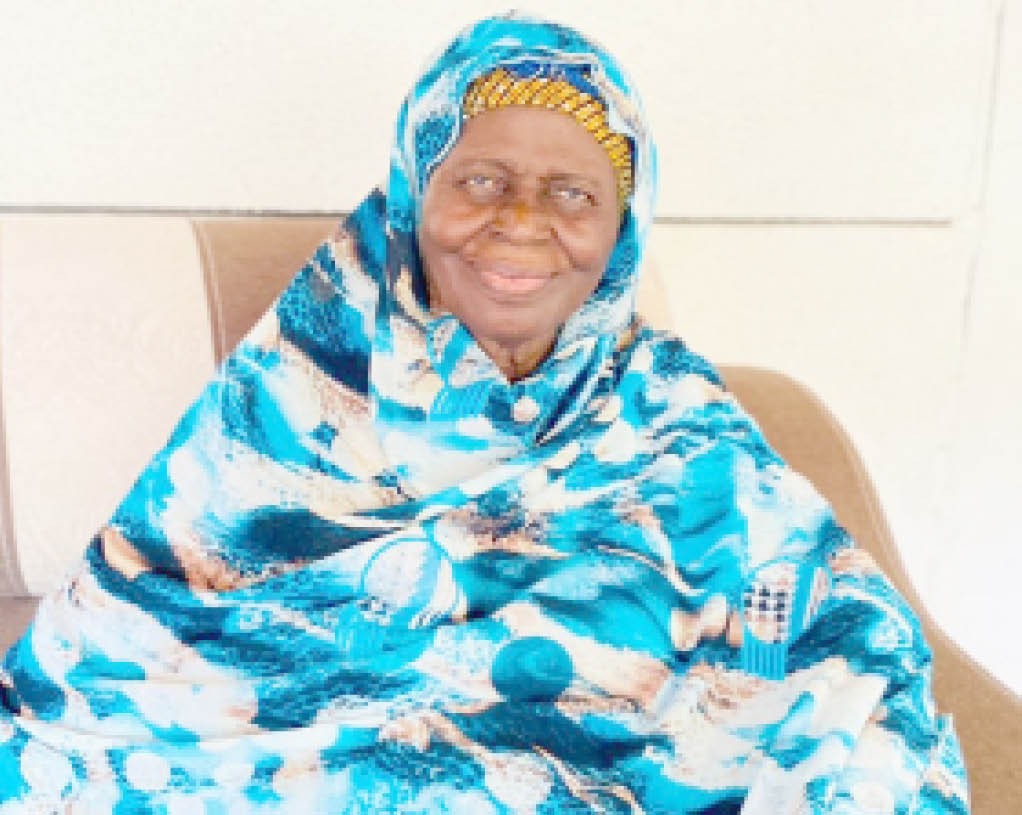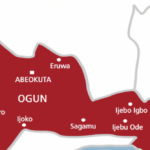Hajiya Dije Jubrin Bala is an educationist and administrator. She started life as a primary school teacher and rose to become a permanent secretary in the Ministry of Education and was at time the Commissioner for Finance in Niger State.
I know you are from Niger State, but you seem to be a Kaduna person?
It is true I am a Kaduna person because I was born and brought up in Kaduna State. My parents went to Kaduna in 1919. In fact, Kaduna was established with them and so all of us were born and brought up in Kaduna, but my local government area is Agaie, my little community is Akwano, a few kilometres from Baro in Niger State.
Baro where the inland port is located?
Yes! So, I started primary school at St Joseph’s Catholic School, Kaduna. The school then was a mixed school. When we got to a certain stage, the girls were moved to what used to be Our Lady’s High School on Independence Way. I think it is now a government secondary school. From there we moved to a boarding school in Kakuri. That was where I did my primary seven examination and was admitted into Sacred Heart Teachers’ Training College on Independence Way, Kaduna.
This was in the 1950s or thereabouts?
Yes! You know then our parents didn’t believe in the education of women. So, all my younger siblings were in school before me and they all graduated before me.
No ransom paid to secure release of abducted female students – Gov Sule
How mob almost lynched me over ‘missing’ genital – Abuja housewife
Why were you not allowed to go to school with them?
You and I know very well the setup in this part of the world then. Girls’ education, particularly the Western education, was not something that was looked at favourably. But I was fortunate to go because my elder sister, Hajiya Sadi Iliyasu, happened to have gone through school and was fortunate to have gone abroad.
How did she go abroad in that era?
Allah! I think she was good and the missionaries saw the potential in her. They sent her to study nursing in England.
While in England she wrote to the headmaster of St Joseph’s Primary School and told him to go to our house on Benin Street and tell my father that she asked him to come and take me to school. That was how I was fortunate to go to school.
How come she was able to go to school if you say she is older than you?
She is the oldest in the family. My mother contributed immensely in her going to school and the missionaries saw the effort of my mum and they helped her.
But did going to a missionary school influence you, in terms of your religion, did it make you more religious or less religious?
Honestly, it made me more religious, but what it didn’t do is to sway me off my path. They took a lot of time to teach us in detail; simple rules like respect for neighbours. And when you come to look at our own faith, it is the same thing. The difference I think between some of us is minimal.
I left the mission entirely and went to the Advanced Teachers College (ATC), Zaria, and there I had enough time, away from the Christian setup.
After completing ATC, Zaria, did you go back to Kaduna to start work?
You see, my father wanted every one of his children who finished any level of education and wanted to work to go to Niger, what used to be Niger Province, to serve for a year. After that he would sign for you to go wherever you wanted.
Others had come and gone. Luckily, it was I that was bringing everybody back home.

What happened when you went back to Niger Province?
When I went and served my one year, during the service, the then North Western State Government gave me a job. I started teaching in the Women Teachers’ College (WTC), Minna.
How long did you spend in teaching?
I taught for 10 months in Kaduna after my teacher training before I went to ATC. When I went to Niger State in 1970, I taught for two years, then I went off to England to do a diploma in teaching of English as a second language. Then I came back and went to the Ahmadu Bello University (ABU), Zaria, where I did my B.Ed in language. After my NYSC I went back to Niger. Since when I came back I served as a vice principal and then as a principal and my journey continued.
How did you get the opportunity to go to England?
At that time there were very few women and there was the British Council and they kind of gave the scholarship. Honestly, I still can’t remember, but applications were sent and mine went through and I was picked.
Was it a strange experience for a young Muslim woman going to England on her own?
I lived in Kaduna with all sorts of people. If I had gone to England from Niger, it would have been strange. But there in Kaduna I met all sorts of people, after all my father worked with the colonial masters.
The difference was the weather. We went there around September, and by December it was freezing cold.
Was this in London or outside of it?
Edinburgh(Scotland)
Did you experience any discrimination?
Oh yes!
How did that affect you?
Even from little kids; our minds were prepared and we were watching films, you know the kind of educational films and there was this famous film of this man from Bauchi, ‘Dan Arewa a London’. You could see some discrimination as he entered the train and that kind of thing. So, we were prepared.
Did you enjoy teaching or were you really looking forward to getting out as soon as possible?
I keep saying, if there is reincarnation, I am going to be a teacher again, because you sit and see the children you are bringing up grow. Besides that, when a child learns something and understands it. You can see in his eyes, you can see the glitter, innocently he expresses it and you have the satisfaction he has gotten from what you are trying to put across.
I will still teach if I have an opportunity.
What of the administrative side of teaching, because you were a principal for quite a while?
I seemed to have been very lucky. At the time I was doing all these, it was a peaceful world, people were committed to their jobs, people knew that they had come in to work and they had to work and they had a lot of support.
There were some problems, but they were not overwhelming as they are now. You found your ability to manage your class helped you in managing the administrative aspect of your school, because you had to do your job. You know who did what, how they did it.
Which schools did you become principal?
WTC in Minna, WTC Gulu. We used to call Gulu Siberia; everybody knew the name but nobody wanted to go there.
Is it outside Minna?
Yes, far away. We had vehicles coming to that town three times in a week, on Mondays, Wednesdays and Fridays. Contractors brought food to the school, it was a large school of over 1,200 students.
Most people will run away from teaching because of the salary. Did that not bother you?
I think it is now you know. At the time I was a teacher, the teacher was respected. You remember then, in the village, after the mai angwa or the head of that village, the headmaster was the next important person, and things were cheap.
Honestly, I don’t know where things have gone wrong for the teacher as it is now, I don’t know.
When I was a Commissioner for Education, the then Governor Abdullahi Kure, I and other people went to a school and the governor asked the students how many of them wanted to be engineers; you know he was an engineer. About 60 of the hands were up. Others were doctors, nurses. Teachers, nobody! I felt like burying myself. I got worked up and I said, “All of you here and the governor included, if there are no teachers you will not be governors and you will not be engineers?”
What do you think went wrong?
You see, I was a permanent secretary for education for a year. One year was not enough for me to bring about a change that would change the mindset of the people.
Education is a giant project and it gulps so much and the government doesn’t seem to understand. You have to put so much into it.
Why has the system broken down, I mean funding may be one factor, but people mention corruption?
I think corruption is on the streets in this country. Anywhere you touch they will tell you corruption, everywhere you touch is corruption; in the school, in the hospital, everywhere.
One thing about teaching is the joy of seeing your products; I am sure you have examples of people out there who went through your hands as a teacher. Can you give us….?
The present Commissioner for Education, Niger State, is one of my products, I can’t list them all, they just call me, “Oh, you were my teacher”, “Oh, you were my principal.” I have a number of them in the University of Technology here lecturing as professors and doctors.
You were at a time the sole administrator of Suleja LGA?
Yes, and later I became the chairperson of the same LGA, during the military.
How was the experience being a local government chairperson?
I was scared because I was saying, how was I going to go about the whole issue?
The first thing I noticed was a heap of rubbish somewhere before you entered the town. I never saw it before, I never noticed it but that day I saw it, I said God, this shouldn’t be there.
And I was lucky the emir then was nice and the elders who were working with me were nice and supportive. And I had a supportive husband who was there.
You also had the experience of being a permanent secretary in many ministries in Niger State. How was it?
Before becoming a permanent secretary, I was working, you know the Better Life Programme in Abuja. I worked with them as an assistant director in charge of adult literacy. From there when they were establishing the state office of the Better Life Programme, they brought me back home as head. That gave me the opportunity to meet different types of people, women, men and so on and l learnt a lot from them. Then I was moved into the government house where I served as the coordinating director.
Was it a strange job you know, at the government house?
I had no choice.
You were a director?
I was a director. It was a permanent secretary that was supposed to be there. I think there was a lot of controversy and the military governor said I should come.
So, how were you made a commissioner?
Honestly, I don’t know. I was away, there was this immunisation exercise that was going on, so I was in a village, Kagarko, in Kaduna State.
I was there when they were looking for me and they went to Suleja and my husband got hold of somebody. So, I had to come back and I was told that, ‘madam you have been appointed Commissioner for Finance’.
Was it challenging for you to be in the position where you were the one deciding how to share money?
We were sharing it in a committee. I refused to take it alone.
You seemed to have retired in your 50s?
When the military left and the civilians came, you know when Abdulsalam was the president, there was this improvement in staff salary. When Obasanjo came he gave all the governors money to pay civil servants, so when our governor came back home, he said what they civil servants had was enough for them. I said no sir.
As perm sec of finance?
No, as perm sec of education. I said no sir, the civil servants too need the increment. Besides that, Obasanjo told the world that he gave you money to do this job, how would you explain back to the president what you used the money for? I think that was my mistake.
Your mistake, why?
They felt I shouldn’t have said such a thing, but I had to. We had meetings three times and I was repeating the same thing, “please pay the civil servants their money”.
Were you kind of eased out?
I left in 2000. As Allah would have it, I am happy I did.
So what have you been doing since then?
When I left, I started working with an NGO, with Hajiya Fati Abubakar. I was coordinating for that programme.
While with the NGO, I went to NIPSS, Kuru, for one year. When I came back I worked with them for a while, then we started doing some work on behalf of some American agencies on immunisation.
Were these activities financially rewarding because you were no more in employment, how were you able to survive?
At least there were monthly payments; that was what kept me going.
Didn’t you make money in government?
The day I left had just my salary for June. I didn’t make money there but I had no regrets.
Tell us a little bit about your family life?
I got married about 45 years ago when I was a principal.
The kind of man that will approach a principal would have to be somebody who had confidence?
I think what people don’t seem to understand is that for a working wife, you have to have two caps, one for the home and one for work.
How many children do you have?
I don’t have biological children, but I have children. I have a number of relations, orphans that I am bringing up. You know this issue of you not having children has not crossed my mind. People sometimes think, oh you don’t have children, I just feel Allah has his plan for everybody and there are things that you are destined to do.
You seem to have a large compound here in Minna, full of people; how supportive is your husband?
When I became the chairperson of Suleja LGA, that year he never travelled out of town, he stayed.
What does he do?
He is an engineer and he started a business of his own.
You have travelled a lot?
It was part of work. I enjoyed travelling.
Which places did you enjoy going to the most?
Greece, you know as a child, in school we read the stories.
Is it the history or the scenery?
We had a history teacher, an Englishman, who was very vivid in the way he taught us and you could see as if you were living it the way he taught it.
As a retiree in your 70s, have you given up on working with NGOs?
No, there is a pickup outside that came to pick me. I am going out for a meeting with a bank, a teachers’ bank.
Teachers bank?
If you look at some of the teachers, even the civil servants, when they retire, after a year or two, you see them looking wretched, there is no money to spend, gratuity doesn’t come, no pension.
So, the NUT said, why don’t we start a scheme that would help teachers to save. So, Niger State picked it up.
You are on the board of the teachers’ bank?
Yes! We have a scheme we call “End Well”. Our capital is about N200m right now.
What do you do for leisure?
In the morning after my prayers, I have a mallam who comes to teach me, (to) improve on my religious knowledge. I also do some exercises.
Which kind of exercises?
I walk in the neighbourhood.




